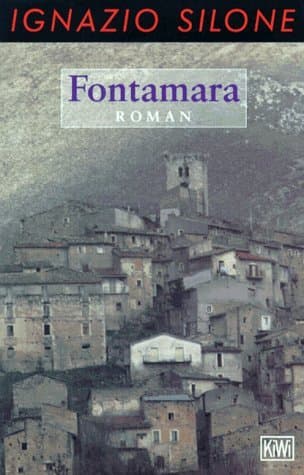
Book Review Summary: Fontamara
Introduction
"Fontamara" is a hard-to-find book written by Ignazio Silone, an Italian author known for his socialist activism and political involvement. This novel, published in 1933, is considered one of the best books on Italian peasants and a remarkable analysis of the culture of central Italy. In this article, we will delve into the author's background, analyze readers' views, and explore the reasons why this book stands out among others.
About Ignazio Silone
Ignazio Silone, the author of "Fontamara," was born into a family of a textile worker and a small landowner. He lost both parents in the earthquake that struck central Italy in 1915. Interrupted from his liceal studies, Silone became involved in politics as a socialist activist and participated in anti-war and labor movements. In 1921, he joined the Communist Party and later left it due to disagreements with Stalin's purges. Exiled in Switzerland from 1930 to 1945, Silone matured as a writer during this period. His passion for literature led him to create "Fontamara," a novel that captures the essence of rural Italy and its people.
Analysis of Views
-
A captivating story told by peasants: Readers appreciate the novel's unique perspective, as it is narrated by the peasants of an Italian village. This first-person narration adds depth and authenticity to the story, making it both sad and captivating.
-
A classic tale of oppression and resistance: "Fontamara" tells the tale of the exploited and oppressed standing up against fascist Rome. The novel highlights themes of resistance and social justice, resonating with readers who share similar values.
-
A reflection on political systems: The book raises questions about political systems and their impact on society. Readers find it intriguing to see how the world of 1933, politically speaking, shares similarities with the world of today. This adds depth to the story and encourages reflection on contemporary political issues.
-
A less impressive follow-up to Bread and Wine: While "Fontamara" is considered an excellent anti-fascist novel, some readers believe that Silone's best work is "Bread and Wine." As a result, they recommend reading "Bread and Wine" before diving into "Fontamara."
-
A book that highlights themes relevant to today: Despite being written in the 1930s, "Fontamara" still resonates with readers today. The themes of social justice and resistance against oppression remain relevant, making this book an important read for those interested in understanding historical contexts and contemporary issues.
Reasons for Recommendation
-
Authentic narration: The first-person narration by the peasants adds authenticity to the story, making it relatable and engaging for readers.
-
Themes relevant to contemporary society: The book explores themes that are still relevant today, such as social justice and resistance against oppression. These themes make "Fontamara" a timeless read that resonates with readers from different backgrounds.
-
Insight into Italian culture: As a book that analyzes the culture of central Italy, "Fontamara" offers readers an opportunity to gain insights into Italian rural life and traditions. This cultural aspect adds depth to the story and enriches the reading experience.
Conclusion
"Fontamara" by Ignazio Silone is a captivating novel that tells the story of peasants in an Italian village during a time of political turmoil. Silone's background as a socialist activist adds depth to the narrative, making it both relevant to contemporary society and a reflection on historical events. While some readers find it less impressive compared to Silone's other works, "Fontamara" remains a recommended read for those interested in exploring themes of social justice, resistance, and Italian culture. With its authentic narration and timeless relevance, this book offers a unique perspective on rural Italy and its people, making it a valuable addition to any literary collection.